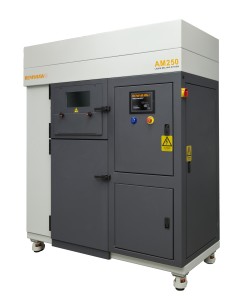Engineering and industrial equipment manufacturing company Renishaw has announced that it has earned a certificate of compliance from equipment testing and certification service TÜV SÜD for its proprietary AM250 metal 3D printer.
The TÜV SÜD electrical safety certification is virtually essential for equipment manufacturers to do business within core manufacturing industries, and for many US and Canadian businesses it is actually mandatory. Earning the certification means that Renishaw can say that its AM250 printer can be used in a manufacturing environment without the need for additional safety checks or inspections.

Prospective clients in the aerospace, automotive or electronic manufacturing industries require independent certification from TÜV SÜD to prove that any new equipment that they purchase can be used 24/7 in industrial environments. Here is a video of the AM250 in action:
Renishaw’s AM250 laser melting metal 3D printer fuses layers of fine metal powders together using a high powered ytterbium fibre laser. This process results in fully-formed and structurally secure metallic parts that can be used as medical implants, engine parts or complex aerospace geometries. The AM250 is capable of 3D printing in several metal materials, including titanium, aluminum, cobalt-chrome alloys and multiple grades of stainless steel.


